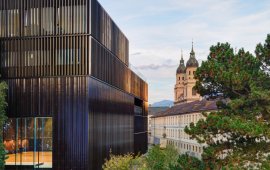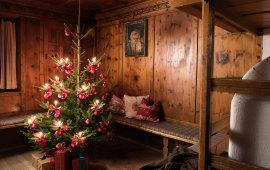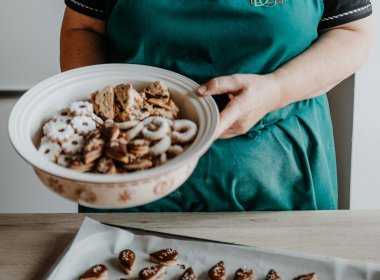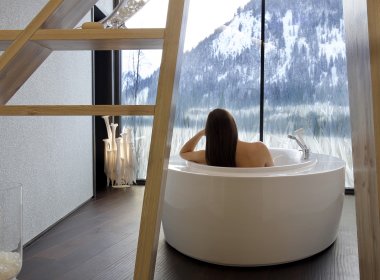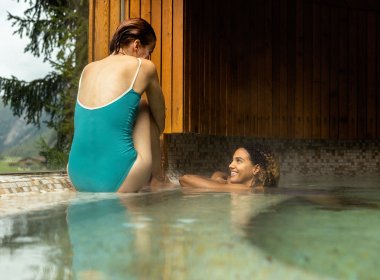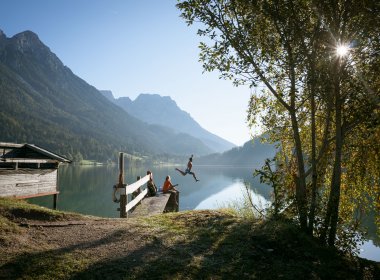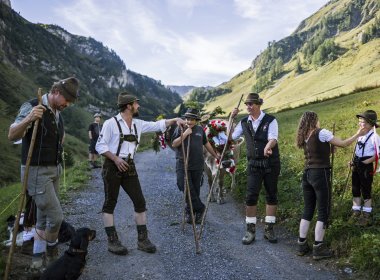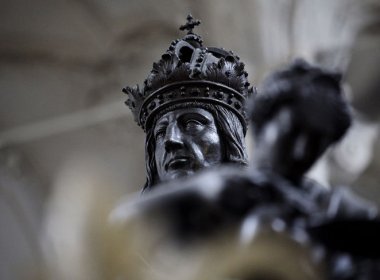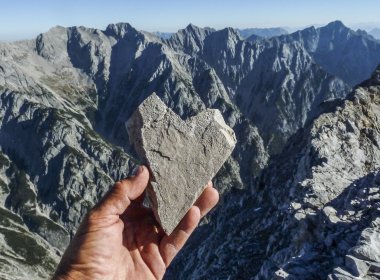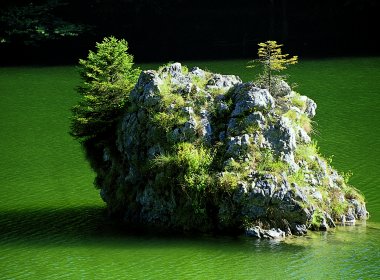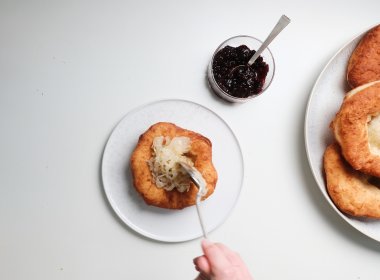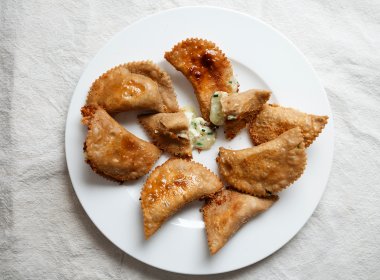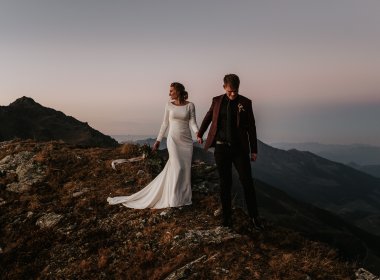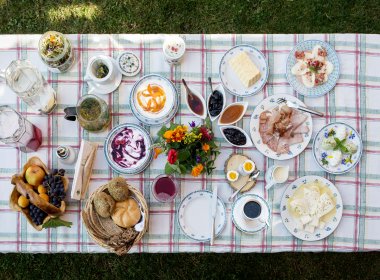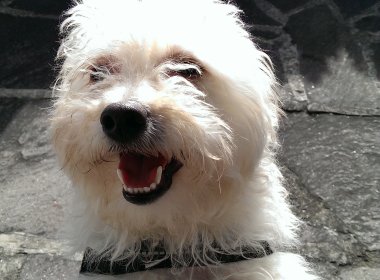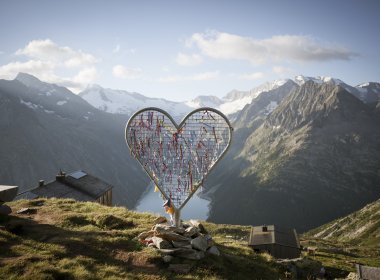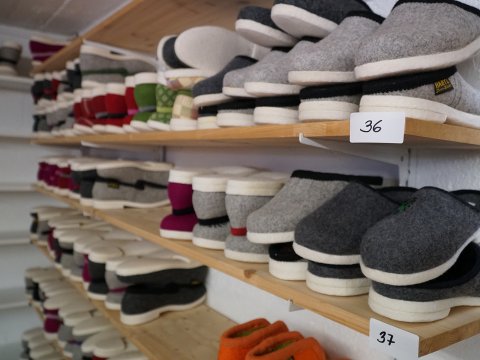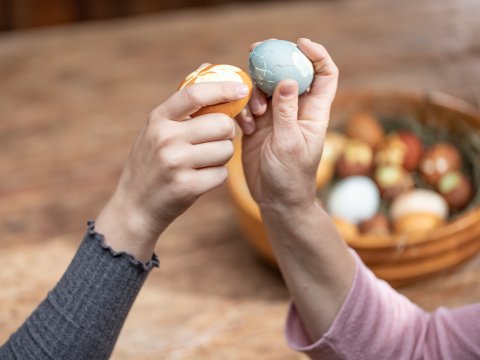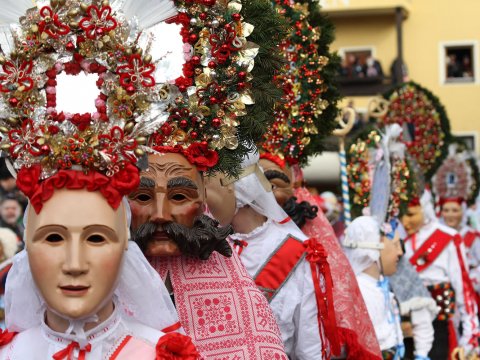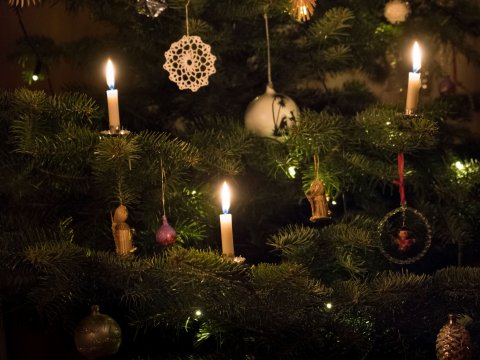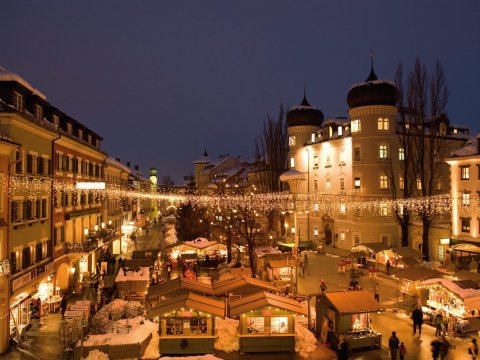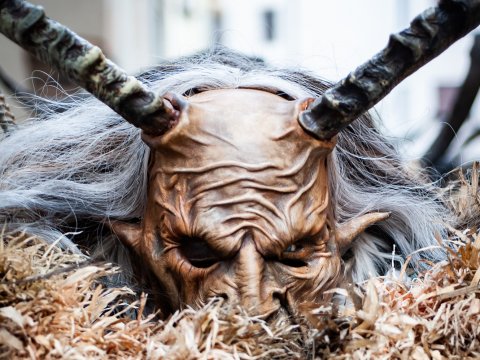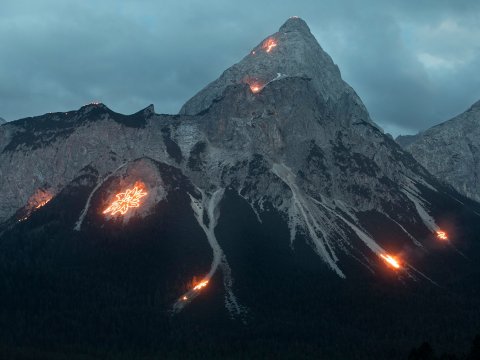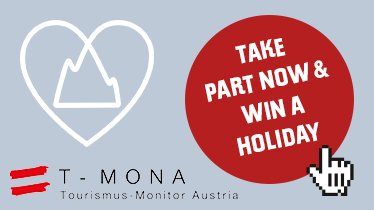The Tirol Dictionary: The Essential Guide for Beginners
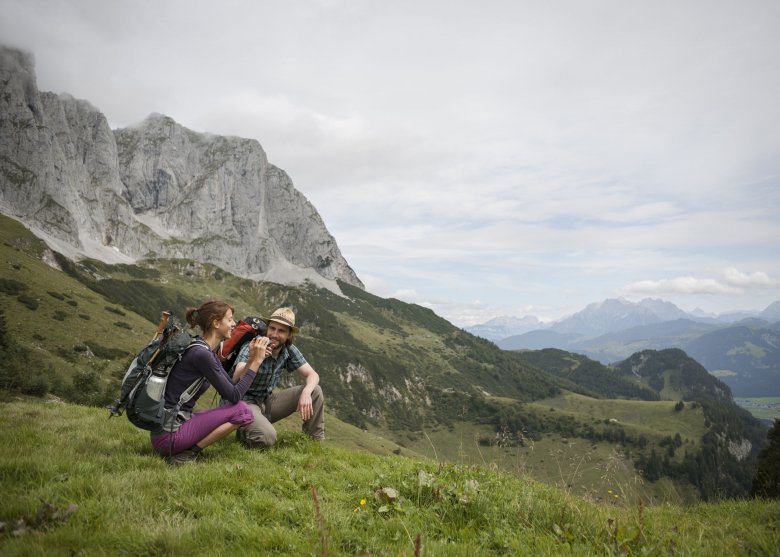
German is spoken throughout Tirol, although there are many local dialects, acronyms and phrases that may confuse visitors, even German-speaking ones. In fact, the dialects here are so strong and varied that even within Tirol not everybody necessarily understands each other all that easily.
We have picked some of the most common dialect words used throughout our region. If you manage to learn a few of these before your holiday, you can be sure of a few impressed looks from the locals.
Saying hello and goodbye in Tirol
Unlike our more buttoned-up neighbours to the north, Tiroleans are happy to be on casual first-name terms pretty soon after meeting. In German this is expressed by using the informal "Du" form instead of the formal "Sie" form when addressing each other.
Informal:
Grias-di, Griaß-enk, Griaß-eich = Hello!, Good day!
Pfiat-di, Pfiat-enk, Pfiat-eich = Goodbye!
Derived from other languages, “Hello” and “Hi” are common greetings in Tirol nowadays. You will also hear "Servus" and the Italian “Ciao” when people say goodbye to each other. In towns and cities the disapproved-of German “Tschüss” is also common nowadays. In shops and restaurants it is likely you will be addressed in German using the formal "Sie" form.
Formal:
Grüß Gott = Good Day!
Wiederschaun = Goodbye!
Asking for and giving directions
You will find these Tirolean expressions useful if you've lost your way or want to get to a particular place.
aui, auffi = up, upward(s)
umi = over, across
außi = out, out there, outside
oi, ochi = down
arschlings = backwards
grodaus = straight on, straight ahead
entn = over there
Bichl = hill. May look like a mountain to lowlanders, making it hard to navigate correctly. After all, the whole landscape of Tirol is formed by mountains. They are everywhere.
Words to describe people
Schmotzgoggl = nice expression for a charming girl. Originally from the Brixental Valley.
Bissgurn = nasty woman.
Loamsieder = slow, boring person you probably don't want to spend much time with.
Lota, Weibetz = man, woman. You will sometimes even find these words on toilet doors in traditional mountain huts.
Lugntschippl = a person you shouldn't believe – known for lying or at least embellishing stories.
Dozn = a very small person. Also known as a Greggeler .
Lulatsch = the opposite of a Dozn – a very tall (normally thin) man.
Fackalar = somebody known for their outrageous sense of humour, telling jokes way below the belt that result in more cringing then laughter.
Sektnschlägl = a dissatisfied person unhappy with himself and the world. A person like this may be called mulat or sektisch.
wompat = somebody with a large beer belly ("Wampe").
schmattig = somebody with a lot of money – perjorative term that can also bring into question how the person has come about so much money.
potschad = used to describe somebody who is clumsy.
Zoggla = somebody who doesn't pay much attention to the way he dresses and may also be known as schlampert.
Zornpingl = an angry person who often works themselves up into a rage.
Children
Popele = Baby
Poppenwagen = Kinderwagen
„in die Heia gehen“ = schlafen gehen, auch „heielen“ für schlafen.
Springgingerl = liebevolle Bezeichnungl für ein lebhaftes Kind, das praktisch nicht stillsitzen kann, sondern am liebsten ständig herumspringt.
Derwischaletz, Fangalex = beliebtes Fangenspiel der Kinder, ohne viel Aufwand und eigentlich überall machbar.
Versteckalex = Such mich! In Einkaufszentren bringen gelangweilte Kinder ihre Mütter damit dazu, den Einkauf abzubrechen.
Purzigagele = Vorwärtsrolle mit dem ganzen Körper. Die Bezeichnung ist bekannt aus dem Tiroler Kinderlied: „Die Buabelen, die Madelen, die machen Purzigagelen…“ Kommt von „purzeln“ = fallen, rollen. Aufgrund der notwendigen Gelenkigkeit und den benötigten Übermutes vorwiegend von Kindern gemacht.
Gummihupfen = ein früher sehr beliebtes Spiel, ein großes Gummiband zwischen zwei Kindern diente als Grenze über die ein drittes Kind in einer gewissen Reihenfolge springen musste.
Templhupfen = ein Spiel auf dem Asphalt mit Feldern, die mit Straßenkreiden aufgemalt werden, wird euch heute noch gerne gespielt.
Floschn drahnen = Flaschendrehen. Für schon etwas größere Kinder.
FOOD-RELATED EXPRESSIONS
Tirol is an amazing place to eat and drink, serving up some of the best food in the world—and from all corners of the world. However, while you’re in Tirol, seek out some of the quintessential must-eat foods and staples.
Kaasspatzln = literally ‘little cheese sparrows’; a kind of soft egg noodle mixed with grated cheese, oven-baked and sprinkled with fried onion
Greaschtl, Gröstl = a real Tirol favourite for generations, this meat, onion and potato fry-up tastes great served with a fried egg
Kaaspressknedl = flat bread dumplings that are filled with onion and cheese and cooked until golden brown on both sides. Cheese dumplings are served in a hearty beef broth or with sauerkraut
Fleischkaas = type of meat loaf made of ham and pork or veal, sometimes including liver
Graukaas = literally ‘grey cheese’; a strongly flavoured, rennet-free cows-milk acid-curd cheese. It owes its name to the grey mould that usually grows on its rind, is extremely low in fat and has a powerful penetrating smell. You either love it or hate it!
Schwammerlen = mushrooms, commonly used for the “golden chanterelle” (“egg mushroom”), which has a magical appeal for culinary experts
Muas = mush, puree
Goggelen = eggs
Weggn = bread
Oranschn = orange
Melanzani = eggplant
Marilln = apricot
Verlängata = sounds like an indecent proposal, means “extended one” and is a cup of coffee, typically served with milk
Zol’n bitte! = The bill, please!
Hots gschmeckt? = Was everything all right? Did you like your dinner?
Mogsch a Schnapsal? = “Would you like some schnapps?” Tirol is on the bucket list of schnapps lovers near and far. Local craft distillers produce flavours you’ll only find here, so, if asked friendly you are strongly recommended to seize the opportunity to savour the fruit of their work. Schnapps has the power to bring people together!
botzn = spill, drip
Botzerei = messy eating
DATING AND ROMANCE RELATED…
Here are some Tirolean phrases for dating and romance that can be quite helpful on folk fests, village fairs and marquee festivals. There is rarely any German spoken on these special occasions.
Honestly speaking, never ever.
Fesches Madl, Diandl = beautiful woman, beautiful girl, pretty lassie
Fescher Bua = handsome lad
Wia hoaschn du? = What’s your name?
Mogsch wos trinkn? = Can I get you a drink?
Woher kimmschn du? = Where do you come from?
Mogsch di herhockn? = Do you want to take a seat?
Du gfolsch ma! = I like you!
I mog di. = I like you.
A Hetz machen = Having fun
hetzig = funny, jolly, amusing
losnen = listen
trotschn = natter, chatter, gossip,
terisch = hard of hearing. “I wear terisch” – I can’t hear a word (comes in handy during a brass band concert)
tamisch sein = being off form, under the weather, fig. dizzy (as a result of dancing polka, for example)
rauschig sein = tipsy
Weiss-Sauer, Rot-Sauer = white wine spritzer, red wine spritzer
Kracherl = similar to “Almdudler”; a sweet, alcohol free lemonade with a herbal twist
Zschigg = cigarette (Note: smoking is prohibited in many indoor public places in Tirol, including marquees)
Beware! If you should happen to hear these words spoken with a serious and/or angry face, you just might have gone over the top and are strongly recommended to take to your heels: “Watschn” or “Fotzn” are Tirolean terms for “a slap in the face”. “I schmier da oane” means “you deserve a box round the ears” and should be seen as a form of disapproval as well… Don’t worry, as mentioned before, the Tiroleans are very friendly and welcoming in general. If you behave properly, you will not get in trouble.
HEALTH RELATED…
You might find these Tirolean phrases helpful when talking about your health. Or, you might just find it funny how we call certain things.
Dokta = Doctor
Apoteggn = Pharmacy
Binggl = bump, swelling, bruise
Buggl = back
Wea = pain
Mir isch letz = I feel sick
Speiberei = stomach flu, or gastroenteritis
Haxn = legs
Zeachn = toes
Goschn = face
Zennt = teeth
Gnagg = neck
magiern = pretending to be sick
Heisl = toilet, bathroom (not a house!)
Plumpsklo = predecessor to the “Heisl”, pail/earth closet. Has now been almost completely replaced by the water closet. Can be found at some quaint old mountain lodges, with a heart cut-out door.
gschleinen = hurry (sometimes needed in connection with “Heisl”)
NATURE EXPLORATION RELATED…
Enjoying the great outdoors of Tirol you might come upon these words.
Tschurtschn = (fir) cone
Viecher = animals
Murmele = marmot
Goas = goat
Anten = ducks
Baam = tree
Oachkatzlschwoaf = A Tirolean slang word for the tail of a squirrel. Often used to proof if someone was Tirolean because Non-Tiroleans can’t pronounce it. Those who can nevertheless, will receive the highest achievable recognition.
COMMON PHRASES AND SAYINGS…
Phrases are rather interesting and they add flavor to our language, but with so many of them existing, eventually you will run into some that you’re not familiar with.
“Isch des bärig! ” = Wow!! That’s amazing! That’s wonderful!
Phrases like “geil” and “cool” reflect modern, colloquial Tirolean usage, often strengthened by “volle”, i.e. “volle cool”
“Mei schian!” = Oh my that’s awesome!
“Na schiach!” = Something very ugly or hideous. Also expressed with “zach”, meaning badly, severely
ge! = “I can’t believe that!”; stressed with regretful intonation: “ma ge hey!” (“That is really unbelievable!”)
ge? = “eh?”, “right?” Used at the end of a sentence when you’re not really asking a question, more providing a statement that you want confirmation for such as “it’s really hot today, eh”
ha? = “What?”, “Pardon?”
a = also, too, as well
amol = once
decht, dechtasch = but, however
eh = anyway, anyhow, that goes without saying, absolutely
epper = somebody, someone
es = pl. you
lei = only, just
woll = but, however
nimma = not more
nocha, nochand = afterward(s), later (on)
olm = always, all the time
ondersch = different
Have fun and practise your Tirolean and you’ll be good as gold :)
By the way, anyone, well, almost anyone can learn to talk like a Tirolean as you can see in this video:










